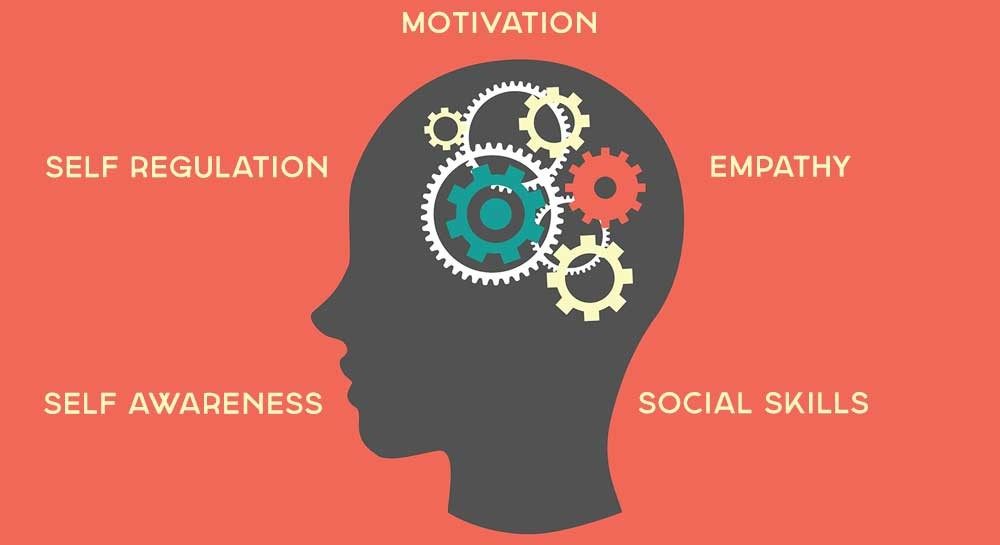
Emotional Intelligence:
Leading researchers on the topic, Psychologists Peter Salovey and John D. Mayer define emotional intelligence as the ability to recognize and understand emotions in oneself and others. An emotionally intelligent person utilizes this ability to make decisions, solve problems, and communicate with others.
The Emotional Intelligence Competence Model:
Daniel Goleman in his international best seller book “Emotional Intelligence” proposed a model which he believed have profound impact on one’s perception about self and behavior toward others.
FIGURE 1: The Emotional Intelligence Competence Model Algorithm

Self-Awareness: Emotionally intelligent people are confident about their ability and know their strengths and weaknesses. They understand their emotions and feelings and because of this, they have full control of it.
Social Awareness: Empathy is the mandatory competence in the social awareness cluster. Empathy is the ability to understand and respond appropriately to the emotions of other people. A professional having empathy is skilled in treating people with respect, kindness, and professionalism. Empathy is divided in two other competencies – Organizational Awareness and Service Orientation. Organizational Awareness competency is essential for higher-level management and executive positions, where understanding workings, structure, and culture of the organization are critical for success. Service Orientation competency is important for positions directly communicating to the customers (external or internal). The positions include – frontline personnel, customer-service representatives, consultants, salespeople, individual contributors and the like hold these positions.
Self-Management: Goleman divided Self-Managemnt into two other clusters: Self-Regulation and Motivation. A person who demonstrates self-regulation has the ability to control emotions and impulses. They think before they act and do not get too angry or jealous which can negatively impact their potential for growth and leadership. However, motivation energizes or drives a person. A self-motivated professional has a goal to achieve and they rather play for long term success than immediate one. They are optimistic, can move past failures and work for organizational success. Their energy is contagious and inspires others to become motivated towards their own goal.
Social Skills: It contains competencies which are more situations specific, that is, more appropriate to certain jobs or roles. It is divided into two clusters – Leading Others and Developing Others – demonstrates the ability to lead and manage others whereas – Building Bonds, Teamwork and Collaboration and Conflict Management – demonstrates the ability to work well with others. It also includes – Communication and Change Catalyst – which necessity depends on the situation, therefore considered optional.
Actions to Improve Emotional Intelligence:
- Identify the reason of your emotion right now. Do not let your emotion influence your communication and decision making.
- Assess your strengths and weaknesses to perform your present role. To assess, you can take help from your past performance reviews, ask for job feedback from your boss as well as colleagues whom you trust. Work on to improve your weaknesses.
- Become solution oriented when there is uncertainty, frustrations and disappointments in the work place. Find out solution to the problems and present those ideas in a professional way.
- Manage your stress. Some of the steps you could take, for example, spend your leisure time with your hobby or interests, meditate, exercise and passing time with friends and family.
- Focus your attention to the parts of your job you love, not the ones you hate. Find ways to do those parts more.
- Change your thinking, change your life. Fill your mind with more positive and optimistic words. Reframe your thoughts and words when you catch yourself being negative.
- Always think from others point of view. Remember everybody thinks and acts from his/her own perspective.
- Listen actively and reflect back what the person is saying time to time so that there is no miscommunications exist. When people feel heard, they tend to be more willing to cooperate and compromise.
- Treat others the way you want to be treated in all situations.
- Improve your communication skill – learn to listen actively, convey information in precise and concise form, and use proper and professional tone when writing.
- Build real connection with your network and this will help you to become more persuasive.
- Do not go for one-size-fit-for-all approach while interacting with everyone in the workplace. Remember everyone is unique and you should tailor an interaction based on the person’s personality, cultural background and position in the company.